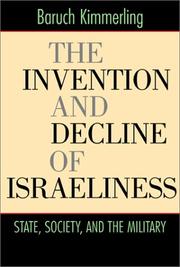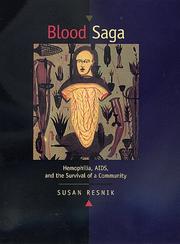| Listing 1 - 5 of 5 |
Sort by
|
Periodical
Abstract | Keywords | Export | Availability | Bookmark
 Loading...
Loading...Choose an application
- Reference Manager
- EndNote
- RefWorks (Direct export to RefWorks)
anthropology --- sociology --- cultural analysis --- social change --- sociology --- culture --- anthropology --- society --- ethnicities --- identity --- Sociology --- Anthropology --- Sociologie --- Anthropologie --- Sociology. --- Anthropology. --- Social theory --- Social sciences --- Primitive societies --- Human beings
Book
ISBN: 0814739121 081478710X 9780814787106 9780814739129 9780814791325 0814791328 9780814791332 0814791336 Year: 2010 Publisher: New York, NY
Abstract | Keywords | Export | Availability | Bookmark
 Loading...
Loading...Choose an application
- Reference Manager
- EndNote
- RefWorks (Direct export to RefWorks)
Arkansas, 1943. The Deep South during the heart of Jim Crow-era segregation. A Japanese-American person boards a bus, and immediately is faced with a dilemma. Not white. Not black. Where to sit?By elucidating the experience of interstitial ethnic groups such as Mexican, Asian, and Native Americans—groups that are held to be neither black nor white—Leslie Bow explores how the color line accommodated—or refused to accommodate—“other” ethnicities within a binary racial system. Analyzing pre- and post-1954 American literature, film, autobiography, government documents, ethnography, photographs, and popular culture, Bow investigates the ways in which racially “in-between” people and communities were brought to heel within the South’s prevailing cultural logic, while locating the interstitial as a site of cultural anxiety and negotiation.Spanning the pre- to the post- segregation eras, Partly Colored traces the compelling history of “third race” individuals in the U.S. South, and in the process forces us to contend with the multiracial panorama that constitutes American culture and history.
Segregation --- Asian Americans --- Desegregation --- Race discrimination --- Minorities --- Asians --- Ethnology --- Race identity --- Southern States --- Race relations. --- 1943. --- Americans. --- Arkansas. --- Asian. --- Crow-era. --- Deep. --- Japanese-American. --- Leslie. --- Mexican. --- Native. --- South. --- Where. --- accommodate. --- accommodated. --- binary. --- black. --- boards. --- bus. --- color. --- dilemma. --- during. --- elucidating. --- ethnic. --- ethnicities. --- experience. --- explores. --- faced. --- groups. --- heart. --- held. --- immediately. --- interstitial. --- line. --- neither. --- other. --- person. --- racial. --- refused. --- segregation. --- sit. --- such. --- system. --- that. --- white. --- with. --- within.

ISBN: 0520939301 1597346861 9780520939301 0585467897 9780585467894 9781597346863 0520229681 9780520229686 9780520246720 0520246721 Year: 2001 Publisher: Berkeley University of California Press
Abstract | Keywords | Export | Availability | Bookmark
 Loading...
Loading...Choose an application
- Reference Manager
- EndNote
- RefWorks (Direct export to RefWorks)
This thought-provoking book, the first of its kind in the English language, reexamines the fifty-year-old nation of Israel in terms of its origins as a haven for a persecuted people and its evolution into a multi- cultural society. Arguing that the mono-cultural regime built during the 1950's is over, Baruch Kimmerling suggests that the Israeli state has divided into seven major cultures. These seven groups, he contends, have been challenging one other for control over resource distribution and the identity of the polity. Kimmerling, one of the most prominent social scientists and political analysts of Israel today, relies on a large body of sociological work on the state, civil society, and ethnicity to present an overview of the construction and deconstruction of the secular-Zionist national identity. He shows how Israeliness is becoming a prefix for other identities as well as a legal and political concept of citizen rights granted by the state, though not necessarily equally to different segments of society.
National characteristics, Israeli. --- Jews --- Religion and state --- Israeli national characteristics --- Identity. --- Israel --- Social conditions --- Ethnic relations. --- National characteristics, Israeli --- Identity --- Ethnic relations --- Jews - Israel - Identity --- Israel - Social conditions - 20th century --- Israel - Ethnic relations --- 20th century. --- citizen rights. --- cross cultural. --- cultural history. --- demographic study. --- ethnicities. --- historians. --- israel. --- israeli military. --- israeli society. --- israeli state. --- judaism. --- middle east. --- modern history. --- multicultural society. --- national identity. --- nationalism. --- nonfiction. --- political analysts. --- political science. --- political. --- resource distribution. --- secular zionists. --- social scientists. --- social studies. --- sociological study. --- sociologists. --- thought provoking.
Book
ISBN: 1469610930 1469612631 9781469612638 9781469610931 9780807833117 0807833118 9781469610924 1469610922 Year: 2013 Publisher: Chapel Hill
Abstract | Keywords | Export | Availability | Bookmark
 Loading...
Loading...Choose an application
- Reference Manager
- EndNote
- RefWorks (Direct export to RefWorks)
Formation of Candomblé: Vodun History and Ritual in Brazil
Blacks --- Candomble (Religion) --- Negroes --- Ethnology --- Candomblé (Cult) --- Afro-Brazilian cults --- Religion. --- History. --- Ethnic identity. --- Bahia (Brazil : State) --- Bahia (Brazil : Captaincy) --- Bahia (Brazil : Province) --- Religious life and customs. --- Black persons --- Black people --- ethnicities --- ports --- the slave trade --- Jeje ethnic identity --- Bahia --- Calundu --- Candomblé --- Afro-Brazilian religion --- the institutionalization of Candomblé --- Bogum --- Roça de Cima --- Jeje Terreiros --- Seja Hundé Terreiros --- the Jeje Pantheon --- the Jeje-Mahji liturgy in Bahia --- Candomble

ISBN: 0520920295 0585299870 9780520920293 9780585299877 0520211952 Year: 1999 Publisher: Berkeley, California : University of California Press,
Abstract | Keywords | Export | Availability | Bookmark
 Loading...
Loading...Choose an application
- Reference Manager
- EndNote
- RefWorks (Direct export to RefWorks)
Resnick describes the, "social, psychilogical, and economic experience," of the hemophilia community.
Hemophilia --- Hemophilia A --- Acquired Immunodeficiency Syndrome --- Community Networks. --- Politics. --- Classic hemophilia --- Factor VIII deficiency --- Haemophilia --- Hematophilia --- Hemorrhagic diathesis --- Blood coagulation disorders --- Conservatism --- Decentralization --- Liberalism --- Political Factors --- Voting --- Political Activity --- Activities, Political --- Activity, Political --- Factor, Political --- Factors, Political --- Political Activities --- Political Factor --- Dissent and Disputes --- Community Care Networks --- Community Health Networks --- Care Network, Community --- Care Networks, Community --- Community Care Network --- Community Health Network --- Community Network --- Health Network, Community --- Health Networks, Community --- Network, Community --- Network, Community Care --- Network, Community Health --- Networks, Community --- Networks, Community Care --- Networks, Community Health --- Cooperative Behavior --- History. --- history. --- United States. --- aids. --- bleeders. --- blood diseases. --- blood safety policies. --- economic experience. --- ethnicities. --- genetic disease. --- hemophilia community. --- hemophilia. --- hiv positive. --- medical personnel. --- miracle treatment. --- national hemophilia foundation. --- national political landscape. --- oral histories. --- plasma. --- psychological. --- queen victoria. --- science researchers. --- social. --- socioeconomic groups. --- the royal disease.
| Listing 1 - 5 of 5 |
Sort by
|

 Search
Search Feedback
Feedback About UniCat
About UniCat  Help
Help News
News